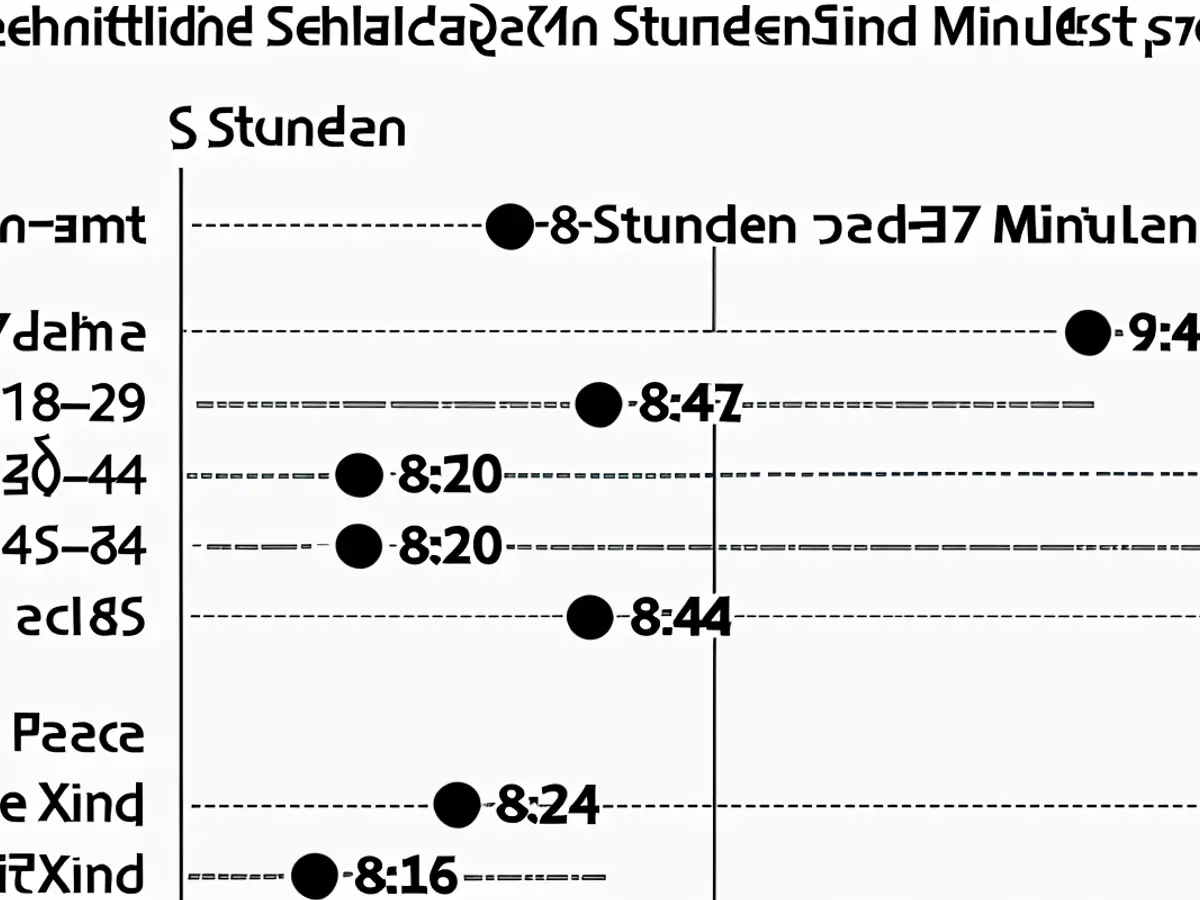What is the average sleep duration in Germany?
Data on sleep patterns is gathered by the Federal Statistical Office through the "Time Use Survey." Recent findings reveal that couples with children at home generally sleep less, with an average of 8 hours and 15 minutes, 19 minutes less than childless couples, as per the survey conducted in 2022. Single parents, too, reported sleeping 8 hours and 22 minutes less than single people without kids, according to the statistics.
Citizens were found to be getting a bit more shut-eye compared to a decade ago, with the average sleep duration for those over 10 being 8 hours and 37 minutes - a rise of 8 minutes since the 2012/2013 survey. The increase in sleep duration was observed across all age groups, but it's unknown if the Corona pandemic had an impact on sleep duration and time use in 2022.
Weekend sleep seems to be more relaxing, as per the data, with an average of 9 hours and 15 minutes at weekends and holidays, compared to 8 hours and 20 minutes during weekdays.
The distribution of sleep durations among different age groups shows children and adolescents (under 18) getting the most sleep, clocking in at an average of 9 hours and 42 minutes. The 18-29 age group was found to be sleeping an hour less, at 8 hours and 47 minutes.
Adults between the ages of 30 and 64 slept an average of 8 hours and 20 minutes, which is almost 30 minutes less compared to older people (65 years and over), who reported an average sleep duration of 8 hours and 46 minutes, according to the released data.
The Federal Statistical Office shared these findings in conjunction with the National Sleep Day for the German Society for Sleep Research and Sleep Medicine on June 21.

Read also:
Parents with children at home often struggle with sleep disorders, as they typically sleep less than childless couples, with an average of 8 hours and 15 minutes according to the 2022 survey conducted by the Federal Statistical Office.
Sleep duration statistics from the Federal Statistical Office show that parents, regardless of marital status, sleep less than individuals without children. For instance, single parents reported an average of 8 hours and 22 minutes of sleep, significantly less than single people without kids.
The Federal Statistical Office's data on sleep patterns reveals that education level can also impact sleep duration. For instance, adults between the ages of 30 and 64, who are likely more educated, sleep less than older individuals (65 years and over) with an average sleep duration of 8 hours and 20 minutes versus 8 hours and 46 minutes.







